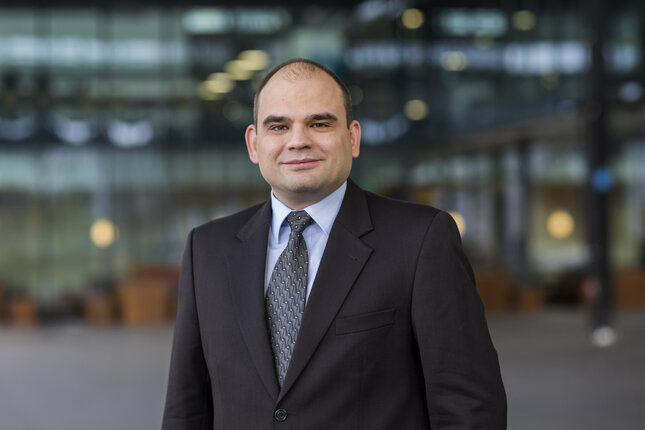High-tech systems are the foundation beneath many products we use every day. They are the foundation beneath our semicon industry, smart mobility, and many more advanced technological areas. No wonder the Dutch Scientific Council (NWO) aims to strengthen research with the NXTGEN Growth Fund that will contribute to Dutch and European high-tech industries. The TU/e leads three of the six funded projects. All three projects tie into our Flagship Future Chips, whether they help look inside semiconductors, improve mechatronic systems, or improve dynamic system designs and train more system engineers.
The six consortia selected by the Dutch Scientific Council to receive funds this round will receive more than 11 million euros in grants. The co-funders of the projects will also provide an additional 5 million euros in funding.
These grants were awarded due to NXTGEN Hightech's first call for proposals, 'Future-proof high-tech equipment'. This call for proposals specifically asked for research proposals that would maintain and reinforce the Netherlands' current strength in high-tech equipment.

Revolutionizing Semiconductor Quality Control with Terahertz Technology
In the chip industry, ensuring the quality of semiconductor materials is crucial. The project is led by Jaime Goméz Rivas , a professor at the Department of Applied Physics & Science Education, who will be working together with the Department of Electrical Engineering of the TU/e, ARCNL, and Saxion University of Applied Science, and seven industry partners.
The project aims to use terahertz electromagnetic radiation to measure key properties like the electrical conductivity of semiconductors at various depths without damaging the materials. A prototype that can quickly scan entire wafers using terahertz technology will be developed.
This innovation will help Dutch semiconductor companies improve production efficiency, reduce costs, and minimize waste, leading to more sustainable manufacturing processes.
Goméz Rivas: "Terahertz light can be used to 'see' properties of semiconductors that are otherwise hidden, without destroying or even touching the wafers. In this project, we will make terahertz light available to the semiconductor industry to improve production yields and device performance."

Modular design of complex dynamical systems
The project 'Next-generation High-tech Systems Engineering: Modular design of complex dynamical systems' addresses two critical challenges facing the Dutch high-tech industry: the increasing complexity of system designs and the shortage of qualified system engineers.
This consortium will be led by Nathan van de Wouw , a professor at the Department of Mechanical Engineering. Recognizing the importance of maintaining the Netherlands' globally leading position in the high-tech sector-a cornerstone of its economy-the project proposes an innovative approach to system design.
By fully embracing modular design principles and automating the design process, this scalable method promises to revolutionize the development of complex systems. The approach will initially be applied to groundbreaking machine design in the semiconductor industry, providing a significant competitive edge and ensuring the Dutch industry's sustained global leadership.
TU/e is the main applicant, and Groningen University is the co-applicant. "We aim to simplify the design of complex high-tech systems through contract-based system engineering with this project," says Van de Wouw.

AI-driven Holistic Design and Control Tools For Planar Motors
The growing expectations and market demands in the semiconductor industry are driving the design of high-precision mechatronic systems to unprecedented levels of specification and complexity. Traditional iterative design methods for mechanical (ME), electromagnetic (EM), and control (CT) domains are no longer sufficient to meet these challenges.
In the groundbreaking research project 'AI-driven Holistic Design and Control Tools For Planar Motors' (AIDEAL) leading research groups from TU/e, TU Delft, and key industry players in the semiconductor manufacturing equipment sector join forces to develop an AI-driven optimization process.
The project, led by Roland Tóth , a professor at the Department of Electrical Engineering, focuses on the integrated and optimal co-design of ME topologies, EM layouts, and motion-control algorithms for high-precision planar actuators.
By adopting a holistic and fully automated approach, this research aims to push the boundaries of innovation in system design, ensuring that the industry can meet future demands of cutting-edge precision and efficiency. Tóth says: "AI-driven co-design will lead the way for the semiconductor manufacturing equipment industry to achieve extreme precision and productivity."
About the National Growth Fund Program NXTGEN Hightech
This call for proposals is part of the National Growth Fund program NxtGen Hightech. This program develops a new generation of high-tech equipment focused on sustainability, digitalization, health, and technology sovereignty. This will strengthen the Netherlands' earning capacity and address societal challenges.






